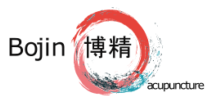
Living in modern society everybody has to face a stressful life of working or studying. Long term stress often causes depression and anxiety. Many other reasons also can lead to depression and anxiety, including marital or relationship problems, unemployment, alcohol or drug abuse, early childhood trauma or abuse, health problems or chronic pain and family history.
TCM (Traditional Chinese Medicine) Perspective
TCM does not separate the mind and body. Emotional well-being is inseparable from physical health. We use pattern differentiation, meaning two people with “depression ” or “anxiety” may receive completely different treatments based on their underlying imbalance.
I will explain these in details from the following four aspects: diagnosis, treatment methods, strength and limitations.
1. Diagnosis:
The first and most important part of the whole treatment process.
We call it TCM Pattern Identification. I will diagnose a “pattern of disharmony” through:
- Tongue Diagnosis: Looking at the color, shape, and coating.
- Pulse Diagnosis: Feeling the quality of the pulse at six positions on each wrist. I have been studying the pulse diagnosis in the last 7 years.
- Detailed Questioning: About emotions, diet, sleep, digestion, and overall energy.
Then I draw a Common Pattern Identification for Depression/Anxiety:
- Liver Qi Stagnation: The most common pattern for stress. Frustration, irritability, mood swings, feeling “stuck,” sighing, tightness in the chest and ribs.
- Heart-Spleen Deficiency: Worry, overthinking, anxiety, insomnia, fatigue, poor appetite, palpitations.
- Kidney Yin Deficiency: Anxiety, restlessness, heart palpitations, night sweats, insomnia (waking frequently), low back pain. Often seen in chronic stress.
- Phlegm-Fire Harassing the Heart: Severe anxiety, panic attacks, irrational fears, insomnia, a feeling of oppression in the chest.
2. Treatment Methods:
Acupuncture:
Acupuncture can regulate the function of these internal organs by stimulating certain points on certain meridians. The most well-known TCM tool. Fine needles are inserted at specific points to unblock Qi, regulate organs, and calm the Shen (spirit/mind). Points are chosen based on the diagnosed pattern.
A systematic review and meta-analysis study suggests that acupuncture combined with antidepressant medication is effective, has an early onset of action, safe and well-tolerated over the first 6-week treatment period [1]. In depression treatment, a cost-effectiveness analysis study from UK suggests that acupuncture is cost-effective compared with counselling or usual care alone [2].
Chinese Herbal Medicine:
Chinese herbs also can have good effect in relieving depression and anxiety symptoms. Custom formulas of herbs are prescribed to address the root imbalance.
For example:
- Xiao Yao Wan is classic for Liver Qi Stagnation.
- Gui Pi Wan is for Heart-Spleen Deficiency.
- Liu Wei Di Huang Wan (Six Form) is for kidney-Yin deficiency.
- Tian wang bu xin wan (Cardiotonic form) Phlegm-Fire Harassing the Heart.
Dietary Therapy:
Foods are classified by their energetic properties (hot, cold, etc.) and recommended to help correct the imbalance.
Tai Chi & Qi Gong:
Mind-body practices that combine movement, meditation, and breathwork to regulate Qi and calm the mind.
Tui Na (Chinese Medical Massage):
Used to stimulate acupuncture points and meridians to promote flow.
To read the previous one, Click here.

